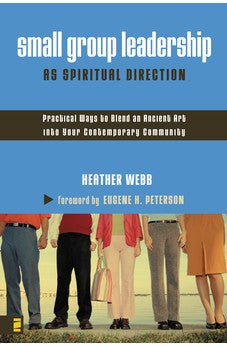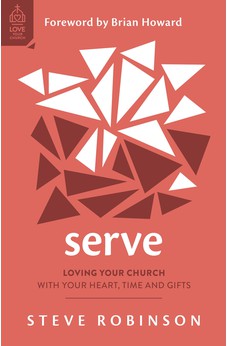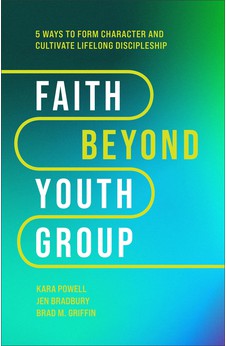Speaking of Dying: Recovering the Church's Voice in the Face of Death
3 Great Reasons to Buy from Us:
The church does not cope very well with dying. Instead of using its own resources to mount a positive end-of-life ministry for the terminally ill, it outsources care to secular models, providers, and services. A terminal diagnosis typically triggers denial of impending death and placing faith in the techniques and resources of modern medicine. If a cure is not forthcoming, the patient and his or her loved ones experience a sense of failure and bitter disappointment.This book offers a critical analysis of the church's failure to communicate constructively about dying, reminding the church of its considerable liturgical, scriptural, and pastoral resources when it ministers to the terminally ill. The authors, who have all been personally and professionally involved in end-of-life issues, suggest practical, theological bases for speaking about dying, communicating with those facing death, and preaching about dying. They explore how dying--in baptism--begins and informs the Christian's life story. They also emphasize that the narrative of faith embraces dying, and they remind readers of scriptural and christological resources that can lead toward a "good dying." In addition, they present current best practices from health professionals for communication among caregivers and those facing death. The book includes a foreword by Stanley Hauerwas. From the Back Cover Faithfully Engaging Those Who Are DyingThe church does not cope very well with dying. Typically, a terminal diagnosis triggers denial of impending death and placing faith in the techniques and resources of modern medicine.Speaking of Dying reminds the church of its considerable resources when it ministers to the terminally ill. The authors suggest practical, theological bases for speaking about dying and explore how dying--in baptism--begins and informs the Christian's life story. They emphasize that the narrative of faith embraces dying, and they present scriptural and christological resources that can lead toward a "good dying.""This is a book we have desperately needed. I hope it will become a book widely studied in congregations and seminaries. We must learn to speak of dying. This book appropriately helps us recover our voices as a people taught to speak by the one who died on a cross."--Stanley Hauerwas (from the foreword)"This book is written with a pastoral heart and a prophet's voice. It is wise in the ways of caring for the dying and passionate in its cry for the church to remember its own christological narrative and, by doing so, to restore care for the dying into its gospel of care."--Thomas G. Long, Candler School of Theology, Emory University; author,Accompany Them with Singing: The Christian Funeral"This book offers a depth of wisdom on a universal and universally avoided experience: the act of dying.Speaking of Dying combines practical, pastoral, and biblical reflection on the care of the dying and does so without 'spiritualizing' the terrible realities of that experience. Use this book in a congregational context, and it will open up conversations you never thought possible."--Richard Lischer, Duke Divinity School"An essential book for any church leader, pastor, teacher, or active member. When so much is at stake we cannot continue to fail practicing our dying faithfully."--Rob Moll, author,The Art of Dying; editor at large,Christianity Today About the Author Fred Craddock (1928-2015; PhD, Vanderbilt University) was a widely acclaimed preacher and author. He was selected byNewsweek as one of the twelve most effective preachers in the English-speaking world. He wrote numerous books on preaching, several commentaries, andThe Cherry Log Sermons.Dale Goldsmith (PhD, University of Chicago) taught for several years at McPherson College and at the Baptist Seminary of Mexico. He is the author ofNew Testament Ethics and lives in Amarillo, Texas.Joy V. Goldsmith (PhD, University of Okl
The church does not cope very well with dying. Instead of using its own resources to mount a positive end-of-life ministry for the terminally ill, it outsources care to secular models, providers, and services. A terminal diagnosis typically triggers denial of impending death and placing faith in the techniques and resources of modern medicine. If a cure is not forthcoming, the patient and his or her loved ones experience a sense of failure and bitter disappointment.This book offers a critical analysis of the church's failure to communicate constructively about dying, reminding the church of its considerable liturgical, scriptural, and pastoral resources when it ministers to the terminally ill. The authors, who have all been personally and professionally involved in end-of-life issues, suggest practical, theological bases for speaking about dying, communicating with those facing death, and preaching about dying. They explore how dying--in baptism--begins and informs the Christian's life story. They also emphasize that the narrative of faith embraces dying, and they remind readers of scriptural and christological resources that can lead toward a "good dying." In addition, they present current best practices from health professionals for communication among caregivers and those facing death. The book includes a foreword by Stanley Hauerwas. From the Back Cover Faithfully Engaging Those Who Are DyingThe church does not cope very well with dying. Typically, a terminal diagnosis triggers denial of impending death and placing faith in the techniques and resources of modern medicine.Speaking of Dying reminds the church of its considerable resources when it ministers to the terminally ill. The authors suggest practical, theological bases for speaking about dying and explore how dying--in baptism--begins and informs the Christian's life story. They emphasize that the narrative of faith embraces dying, and they present scriptural and christological resources that can lead toward a "good dying.""This is a book we have desperately needed. I hope it will become a book widely studied in congregations and seminaries. We must learn to speak of dying. This book appropriately helps us recover our voices as a people taught to speak by the one who died on a cross."--Stanley Hauerwas (from the foreword)"This book is written with a pastoral heart and a prophet's voice. It is wise in the ways of caring for the dying and passionate in its cry for the church to remember its own christological narrative and, by doing so, to restore care for the dying into its gospel of care."--Thomas G. Long, Candler School of Theology, Emory University; author,Accompany Them with Singing: The Christian Funeral"This book offers a depth of wisdom on a universal and universally avoided experience: the act of dying.Speaking of Dying combines practical, pastoral, and biblical reflection on the care of the dying and does so without 'spiritualizing' the terrible realities of that experience. Use this book in a congregational context, and it will open up conversations you never thought possible."--Richard Lischer, Duke Divinity School"An essential book for any church leader, pastor, teacher, or active member. When so much is at stake we cannot continue to fail practicing our dying faithfully."--Rob Moll, author,The Art of Dying; editor at large,Christianity Today About the Author Fred Craddock (1928-2015; PhD, Vanderbilt University) was a widely acclaimed preacher and author. He was selected byNewsweek as one of the twelve most effective preachers in the English-speaking world. He wrote numerous books on preaching, several commentaries, andThe Cherry Log Sermons.Dale Goldsmith (PhD, University of Chicago) taught for several years at McPherson College and at the Baptist Seminary of Mexico. He is the author ofNew Testament Ethics and lives in Amarillo, Texas.Joy V. Goldsmith (PhD, University of Okl
































